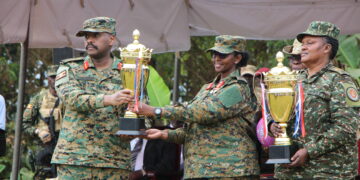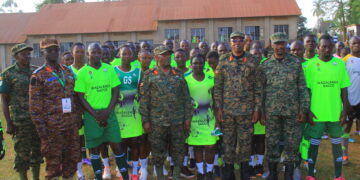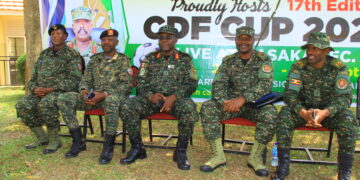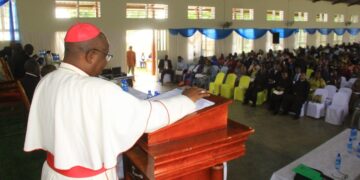Israel’s strikes on Iran on Friday delivered a seismic blow to Iran’s chain of command. Iranian officials and media reports said that at least three top generals — including the overall military commander and the leader of the powerful Islamic Revolutionary Guards Corps — had been killed.
Maj. Gen. Mohammad Bagheri, chief of staff of Iran’s armed forces, was the most senior leader among the dead, according to state media. There was no immediate confirmation from the Iranian armed forces. One of General Bagheri’s deputies was also killed.
Israel has a history of assassinating Iranian security officials and nuclear scientists, but it has typically done so through covert operations, targeting individuals one at a time as part of its long conflict with Iran, often in Lebanon or Syria.
The strikes early Friday marked a dramatic escalation. In addition to targeting Iran’s nuclear program and air defenses, Israeli attacks eliminated the top tier of military commanders in a single night, hitting residential homes, some located within secure military complexes. In parts of Tehran, entire apartment buildings collapsed.
Gen. Hossein Salami, commander of the Islamic Revolutionary Guards Corps, was killed in a strike within Tehran, according to a statement by the Revolutionary Guards. He died alongside several other members of the security body.
Iran’s supreme leader, Ayatollah Ali Khamenei, who also serves as commander in chief of the armed forces, said in a statement on state television that Israel “should anticipate a harsh punishment.
The strong hand of the Islamic Republic will not let them go.” He added that a number of senior military commanders and nuclear scientists had been killed in attacks on residential locations. “The Zionist regime with this crime has created a dark and painful fate for itself, and it will definitely receive it.” Mr. Khamenei did not mention the United States.
Iran had not been attacked with such sweeping force by a foreign enemy since 1989, during its war with Iraq. Mr. Khamenei had long sought to avoid direct conflict, steering Iran to the brink of war several times, including twice with Israel last year, but avoiding full-scale engagement.
That strategy appeared to end Thursday night, as Iranian officials said the country was preparing for war. However, that effort is likely to be hindered by the damage to Iran’s command structure and to the air defenses guarding key military, nuclear, and strategic sites.
Four Iranian officials said Israel had struck at least a dozen locations, including military bases, missile depots, and nuclear and missile sites, across cities such as Tehran, Tabriz, Isfahan, Kermanshah, and Arak. The Natanz nuclear site was also severely damaged, according to state television, with destruction extending to a major highway linking Tehran to Isfahan.
“Unfortunately they did what we did not think they would do,” said Mehdi Rahmati, a conservative political analyst in Tehran with close ties to the government. “Iran will respond very seriously, aiming to inflict destruction. We anticipate a period of pingpong attacks that could spread to the region.”
Among those killed was Ali Shamkhani, a senior former navy commander and influential politician close to Mr. Khamenei. He died from injuries sustained in an attack on his penthouse apartment in a luxury tower in northern Tehran, according to three senior officials and Iranian media.
Mr. Shamkhani, a former secretary of the Supreme National Council, had been leading nuclear negotiations with the United States as part of a committee appointed by Mr. Khamenei. Officials said targeting him was a direct strike on efforts toward nuclear diplomacy.
At least three other senior Iranian figures were also reported dead by state media. They included Gen. Gholamali Rashid, a senior armed forces leader; Mohammad Mehdi Tehranji, an Iranian physicist; and Fereydoun Abbasi, a nuclear scientist.
As head of the Guards force, General Salami was responsible for securing Iran’s borders and defending against foreign attacks. A spokesman for the Revolutionary Guards vowed to respond “decisively and harshly” to what he called the aggression of the Zionist enemy, promising a blow to both Israel and the United States in response to the general’s death.

































